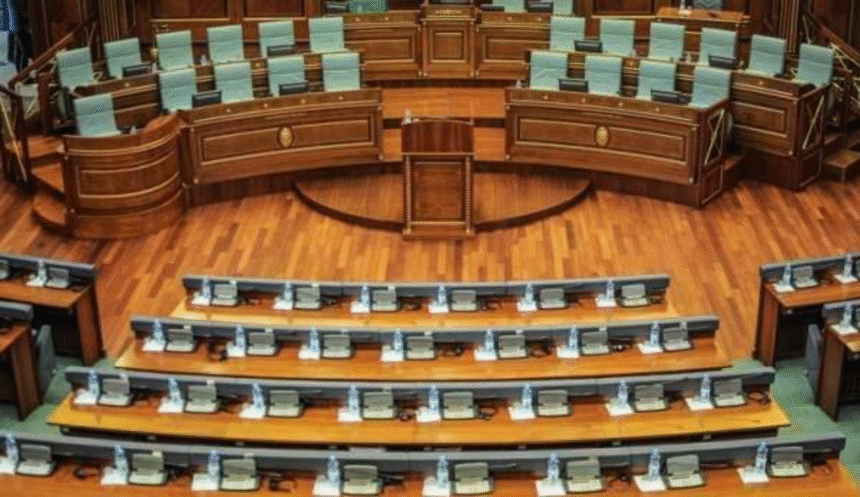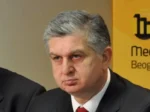For Kosovo’s President Vjosa Osmani, the ongoing institutional vacuum is not just a procedural crisis but a serious obstacle to strategic projects. These range from reforms needed for European integration to defense and economic agreements with international partners.
The United States has also expressed concern, stressing that the political blockade results in “missed opportunities for Kosovo.”
Parliament Fails to Constitute
Kosovo’s Parliament once again failed to constitute on August 20, despite a ruling by the Constitutional Court that mandated its formation within 30 days. The deadline expires on September 18.
Caretaker Prime Minister Albin Kurti has stated that the ruling will be respected. However, none of Vetëvendosje’s candidates for Speaker received sufficient votes during the August 20 session.
The constitutive session, which began on April 15, has been stalled for months due to disputes among parties. The next attempt is scheduled for August 22.
President Osmani has called the matter a “state emergency.”
Strategic Projects at Risk
Osmani’s media advisor, Bekim Kupina, told Radio Free Europe that the vacuum threatens “projects tied to reforms for development and EU integration, as well as those aimed at improving energy infrastructure and economic growth.”
He emphasized that a functional Parliament and Government are essential for implementing strategic agreements, including defense and economic pacts that Osmani recently discussed with the U.S. administration of President Donald Trump.
Last month in Washington, Osmani met Deputy Secretary of State Christopher Landau and other senior officials to discuss strengthening partnerships in energy, defense, and information technology.
International Reactions
A spokesperson for the U.S. Embassy in Pristina urged Kosovo’s political leaders to form institutions in line with the Constitution and Court rulings:
“This ongoing political blockade is resulting in lost opportunities for Kosovo. It is time for leadership to prioritize progress and stability for the benefit of all citizens,” the spokesperson said.
The EU Office in Kosovo echoed this view, stressing that swift formation of institutions is essential for reforms that will improve living standards.
The Italian Embassy, representing the QUINT group, also urged responsibility from all political actors to ensure timely parliamentary formation.
Risk of Institutional Anarchy
Lulzim Peci, head of the Kosovar Institute for Policy Research and Development (KIPRED), warned that failure to meet the 30-day deadline could lead to “institutional anarchy.”
He noted that the Constitutional Court is already short of judges and risks losing quorum in September, which could paralyze decision-making.
“This could push Kosovo into collapse, with extraordinary consequences for democracy, international relations, and the economy,” Peci told Radio Free Europe.
EU Integration Blocked
Journalist Augustin Palokaj highlighted two EU approaches: a passive stance of waiting and a warning stance stressing long-term risks.
One immediate consequence is the suspension of over €80 million in pre-financing from the EU’s Growth Plan for the Western Balkans, which requires a functioning government and parliamentary ratification.
Another setback concerns Kosovo’s Council of Europe membership bid. Without institutions in place, the process cannot move forward.
“In these conditions, when Kosovo cannot join the Council of Europe, cannot access EU funds, and still faces punitive measures over northern tensions, progress toward EU candidate status is impossible,” Palokaj explained.
Kosovo remains the only Western Balkan country without EU candidate status.
Kosovo’s political stalemate has now become a critical national challenge, threatening its international credibility, economic stability, and European path. Analysts warn that unless leaders take responsibility, the country risks slipping into institutional collapse.







